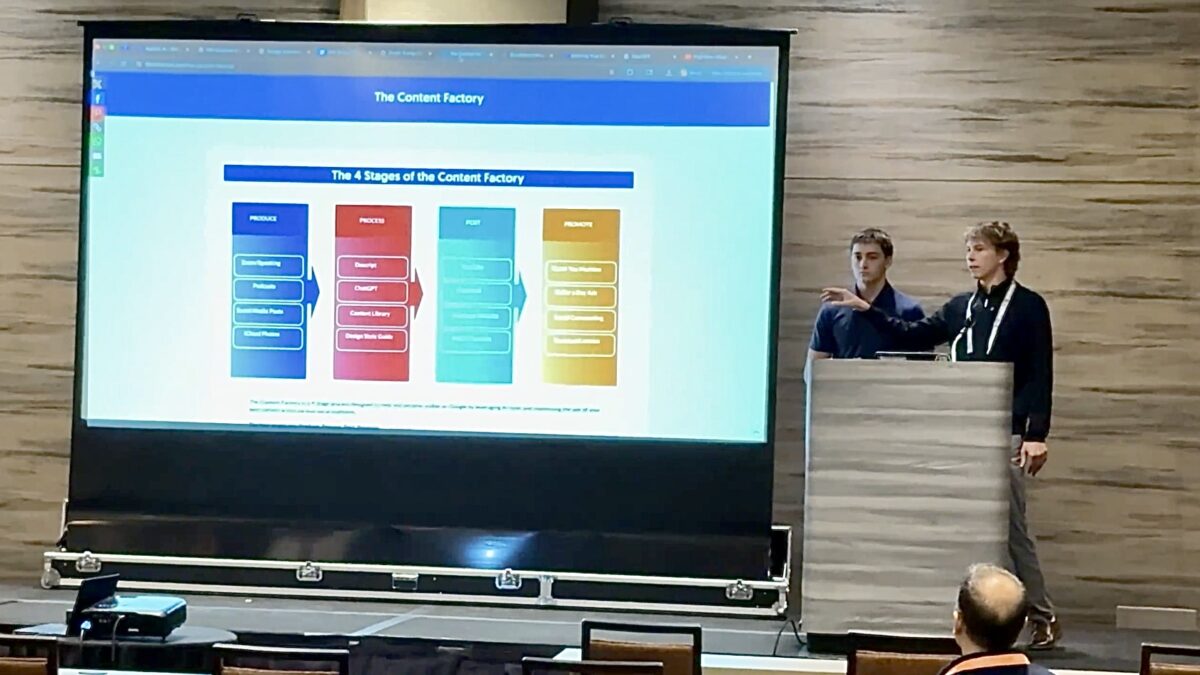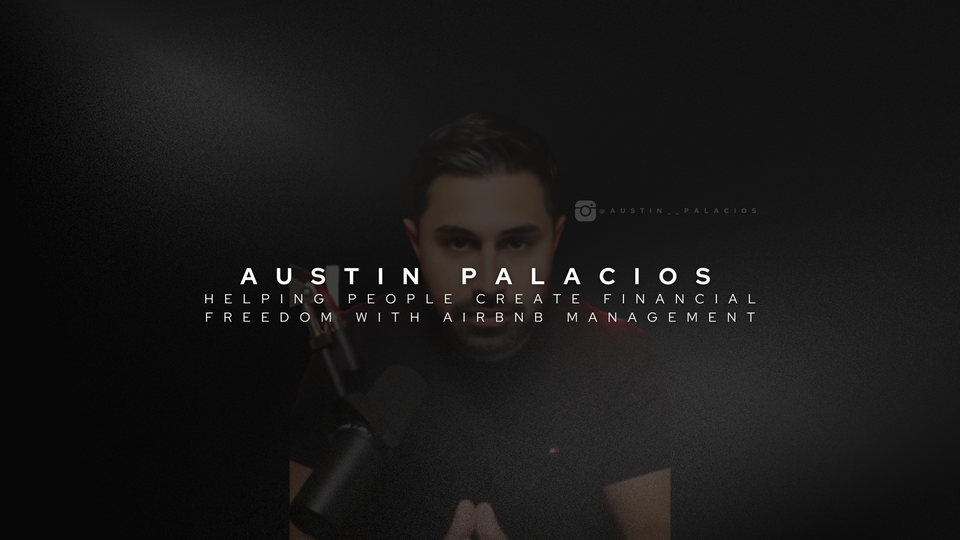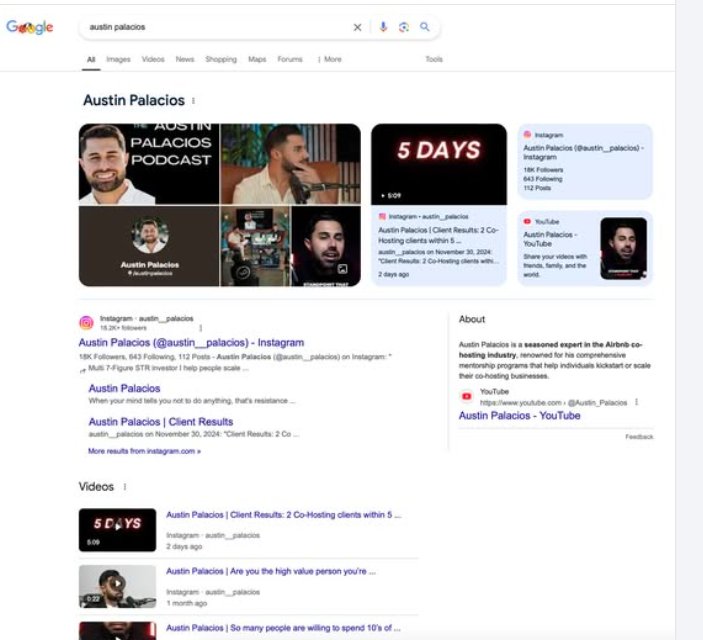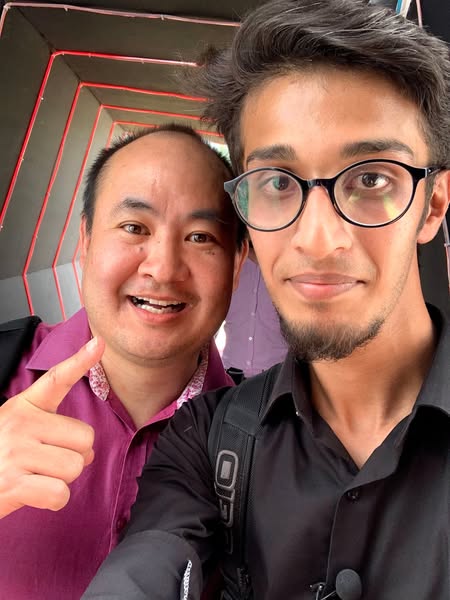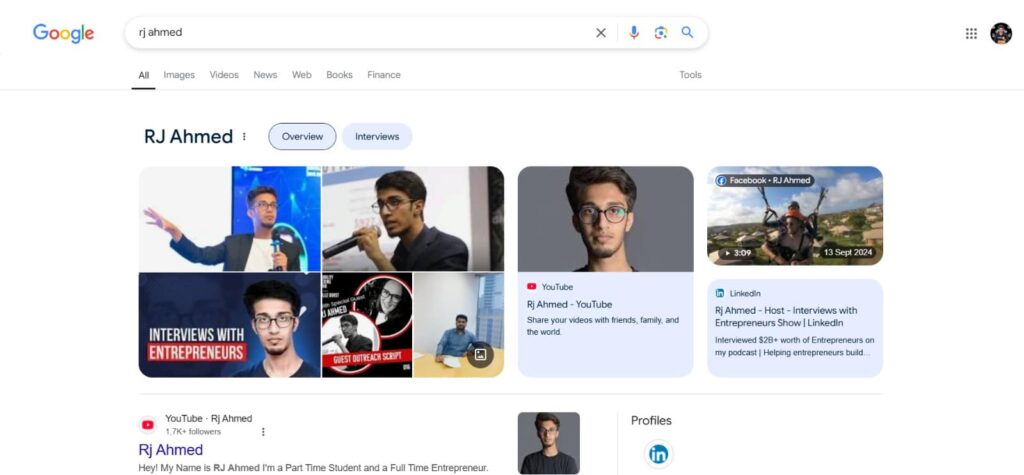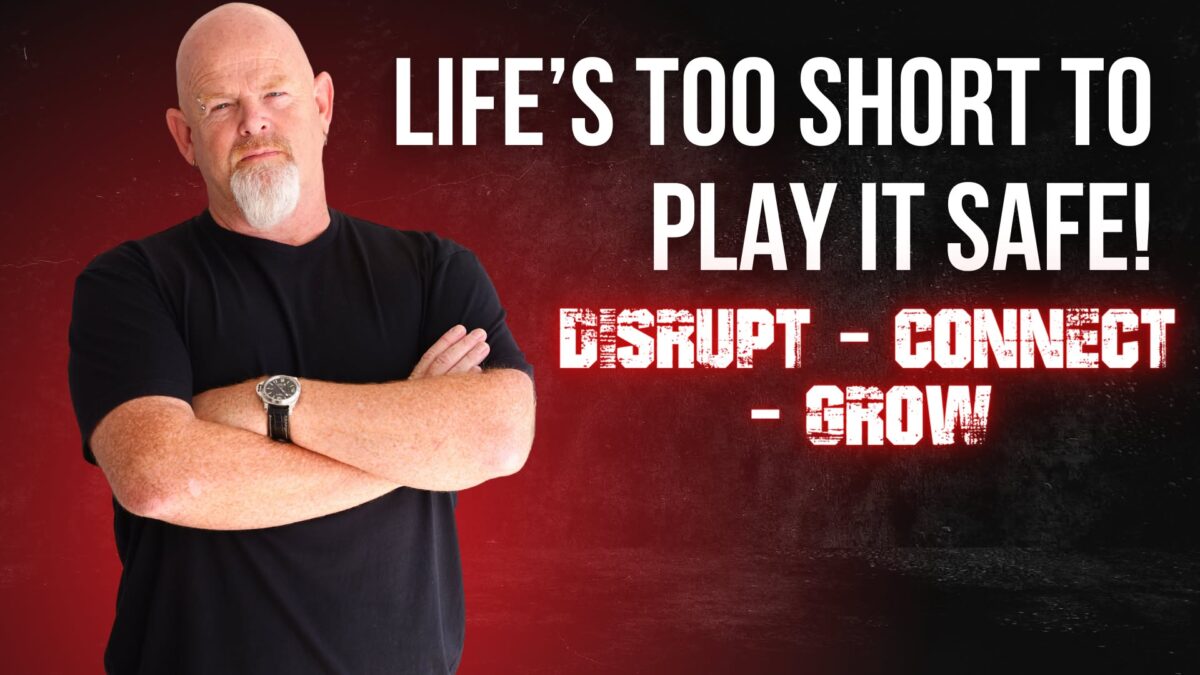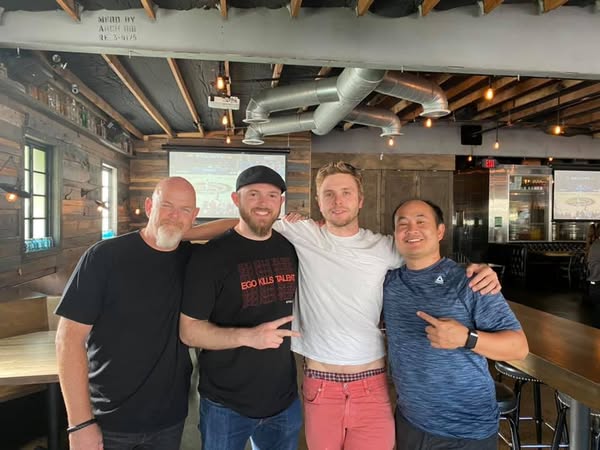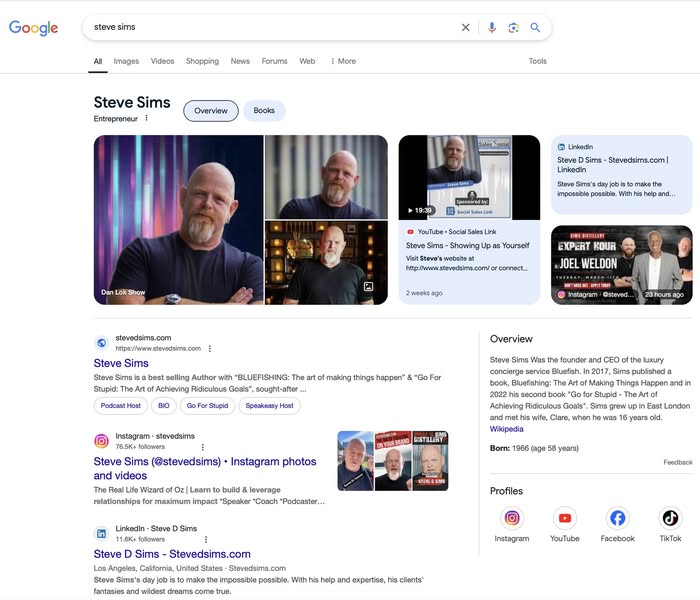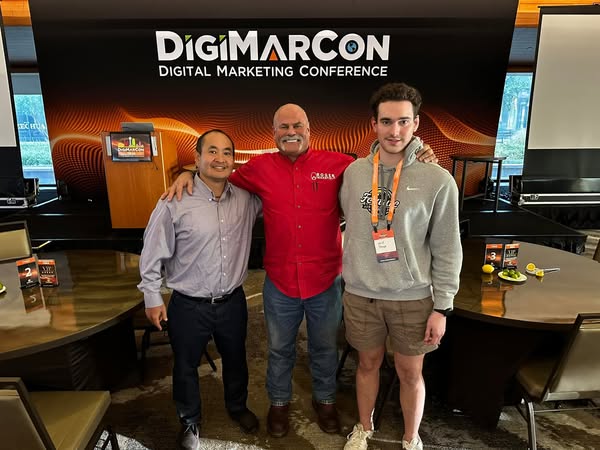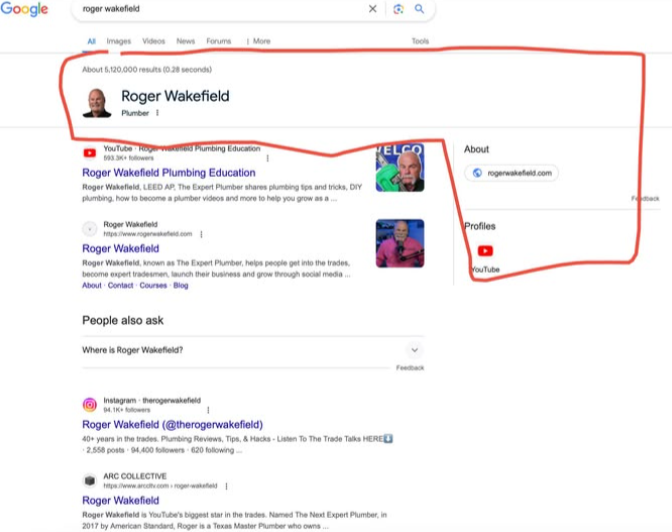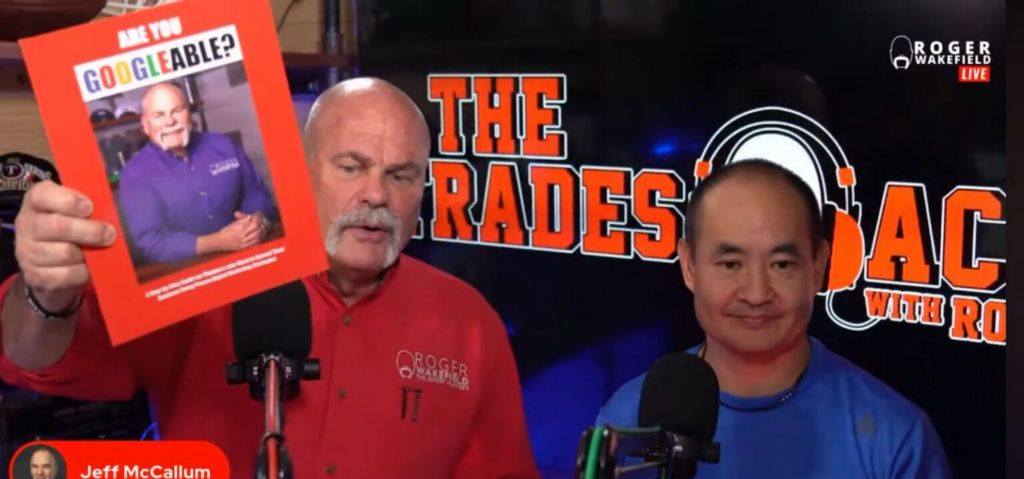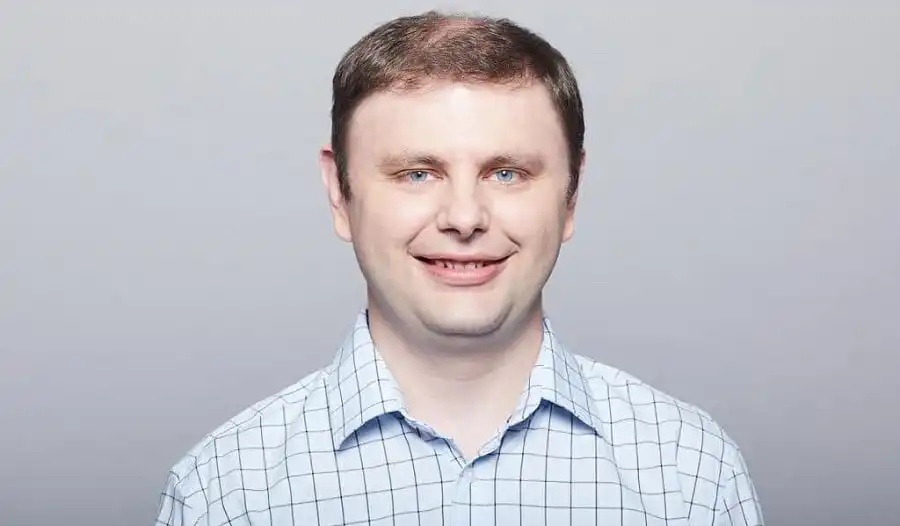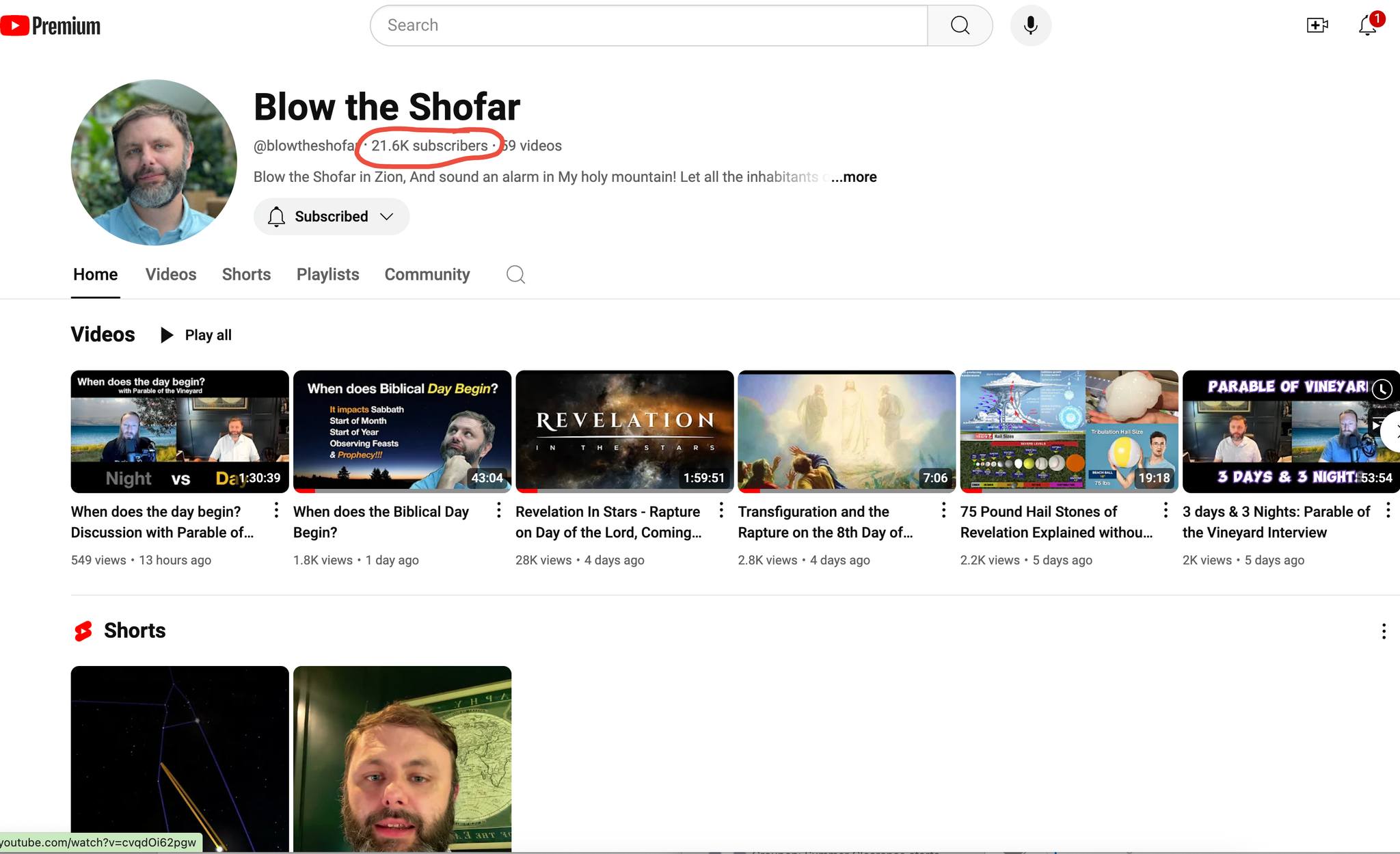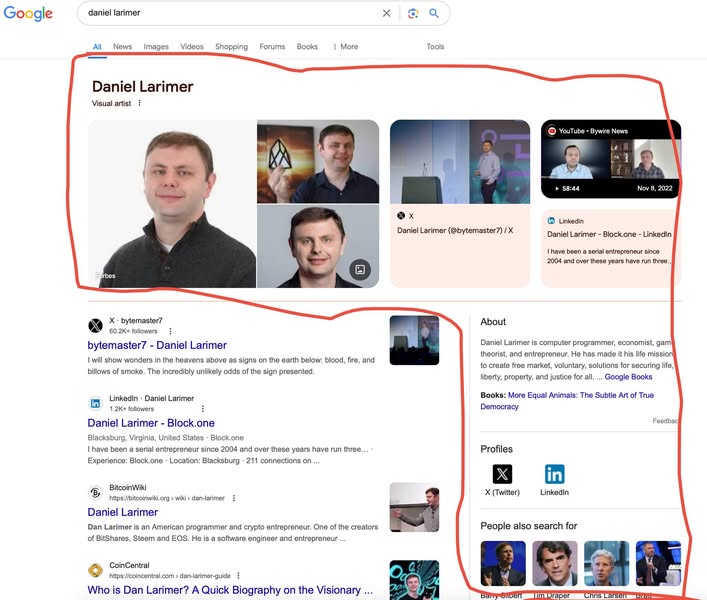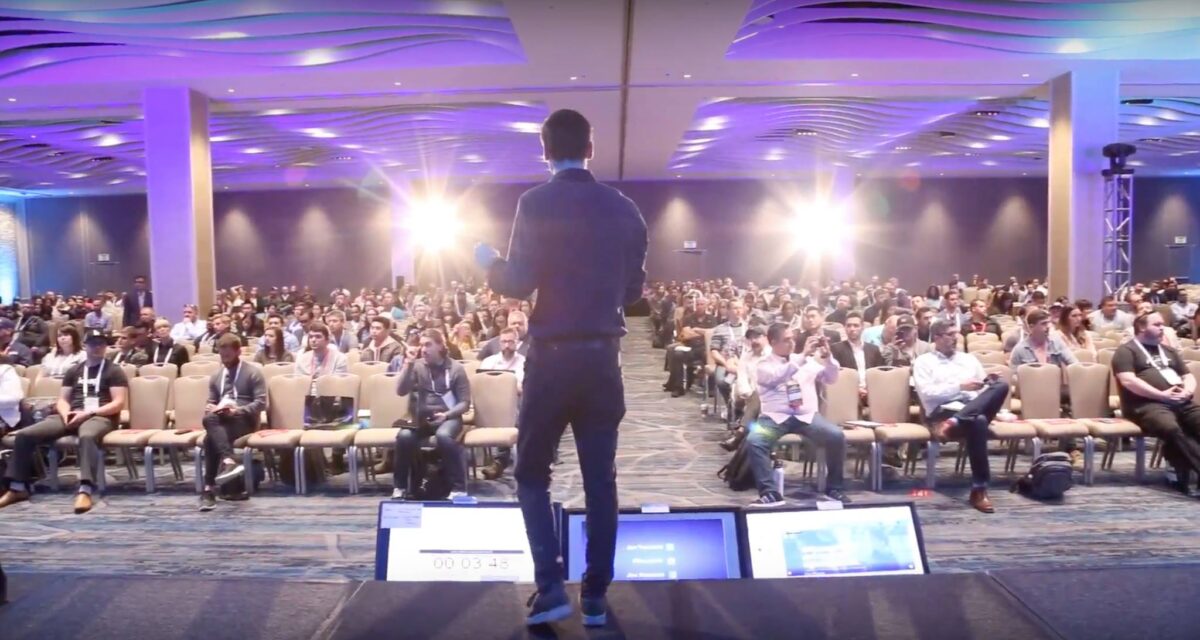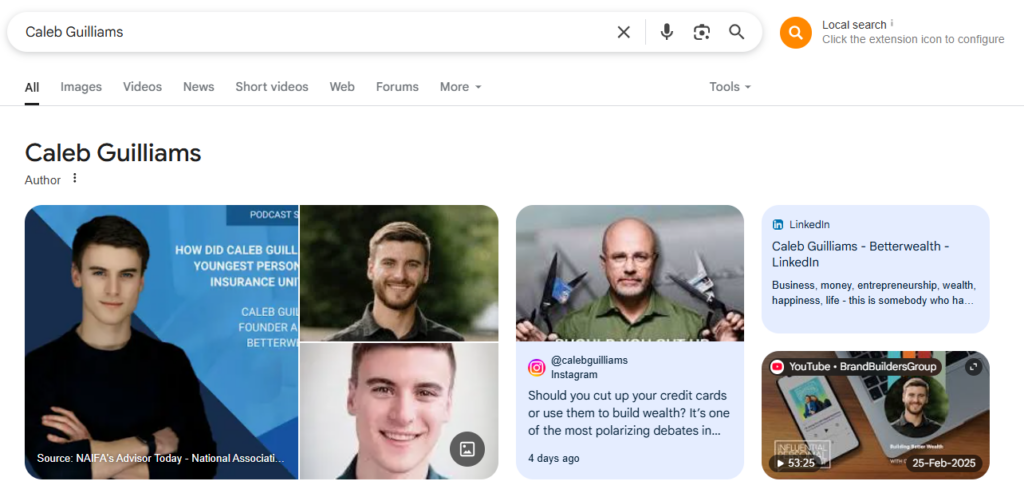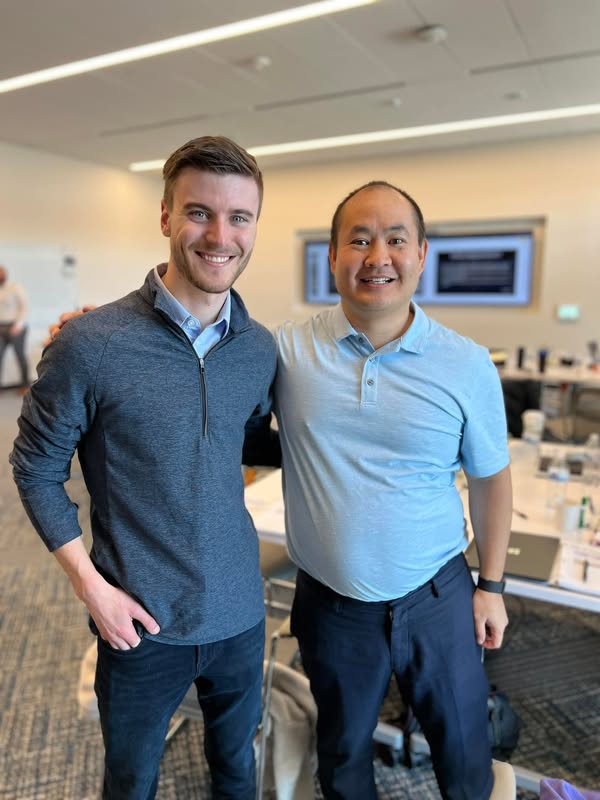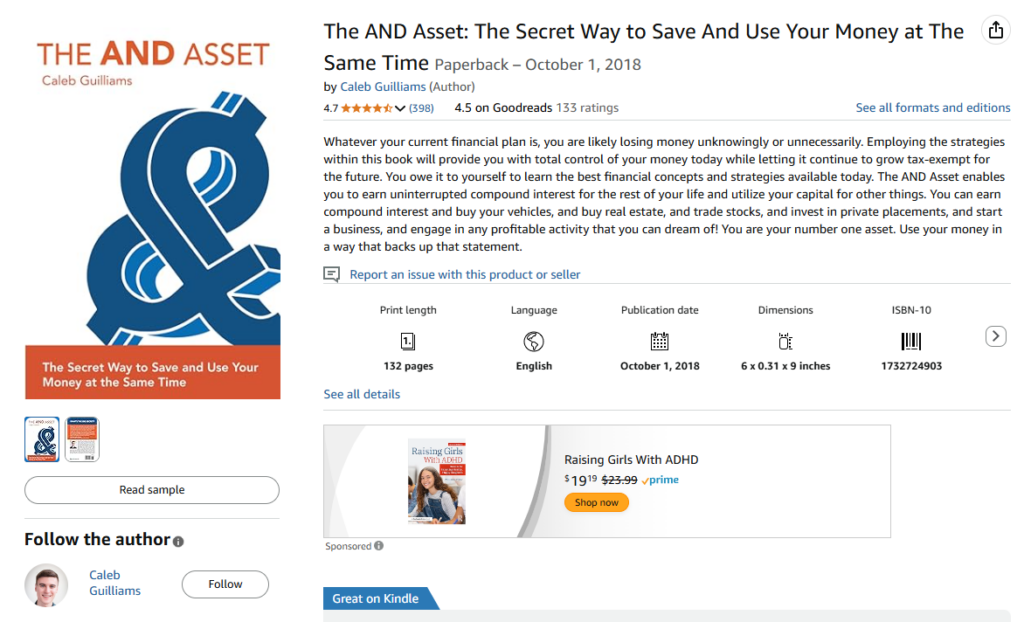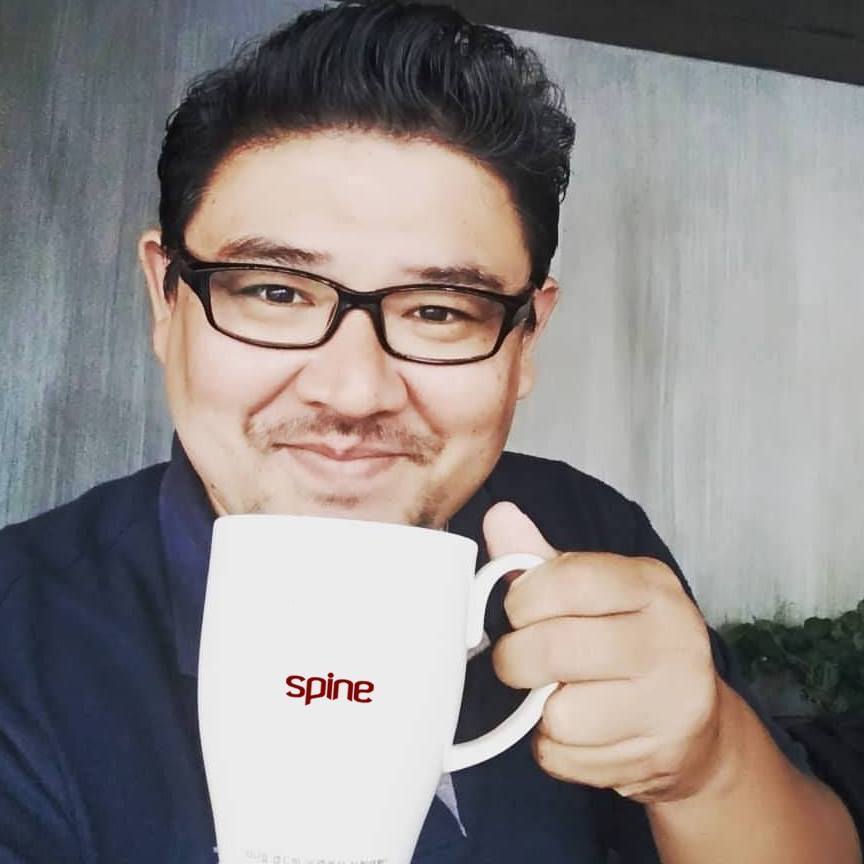How Jack Wendt & Dylan Haugen Coach Young Adults to Build Authority Through AI and Google’s Knowledge Graph
When Jack Wendt and I spoke at DigiMarCon Las Vegas 2025, our goal wasn’t just to teach marketing systems — it was to show how young adults can learn to build digital authority using AI, Google’s Knowledge Graph, and structured personal branding systems.
Through High Rise Influence and our coaching package, High Rise Academy, we’ve been training students to take these same tools and frameworks and apply them to real-world clients — often their parents’ or sponsors’ local service businesses. The results have been powerful: students gain tangible experience, and business owners get measurable growth in visibility, reputation, and authority.
The Topic Wheel: Coaching People to See Their Story
We opened our session with the Topic Wheel, a framework originally developed by Dennis Yu to help individuals map their expertise and professional network.
In the middle sits your name. Around it are your six core topics — the key areas you want to be recognized for. What makes this framework so valuable is the connections it reveals. Each topic branches to people you’ve collaborated with — mentors, clients, and peers.
For example, Jack shared how his first mentor, Caleb Williams, founder of BetterWealth, helped him discover his purpose and eventually introduced him to Dennis Yu. That one connection led to a chain of opportunities that shaped both of our paths — and that’s what we coach our students to recognize: authority grows through relationships built on shared content and collaboration.
When our students map their own Topic Wheels, they begin to understand how their interests, work, and connections form a digital fingerprint that Google can see — one that can be built into lasting authority.
The Content Factory: Turning Coaching Into Action
Once you’ve mapped your expertise, the next step is turning your real-world experience into structured, shareable content. That’s where the Content Factory comes in — the four-stage system we teach inside High Rise Academy:
- Produce — Capture what’s already happening: interviews, team meetings, client calls, or training sessions.
- Process — Use AI tools like Descript to clean up audio, remove filler words, and transcribe content automatically.
- Post — Repurpose that material into videos, blogs, or short-form posts for multiple platforms.
- Promote — Test which content performs best with strategies like the Dollar-a-Day ad method and scale from there.
We tell every student: the hardest step is just pressing record. Once content exists, the rest can be automated with the right tools and structure.
For example, we had students film five-minute clips interviewing a family business owner. They used Descript to edit the footage, exported it for YouTube and Facebook, and then generated blog posts using a custom GPT trained on our writing standards. Within a week, those small businesses had content outperforming their competitors — all while our students learned real skills that transfer to any career in marketing or media.
The Google Knowledge Graph: Understanding Digital Trust
We then demonstrated how Google’s Knowledge Graph is the backbone of modern authority. Every recognized person, business, or brand is assigned a Knowledge Graph MID — a digital ID number used by Google to verify who you are and what you’re known for.
We pulled mine up live — Dylan Haugen, trust score 259 — and explained what it means: Google has enough consistent data from multiple verified sources to confidently associate me with my work, media mentions, and social content.
We use this same concept in coaching. For our students, the Knowledge Graph becomes a tangible way to measure progress. As they help real clients organize websites, link social accounts, and publish consistent content, they see those clients’ digital trust scores grow — and sometimes even reach the point where Google generates a Knowledge Panel (the “blue checkmark” of search).
This transforms abstract lessons about SEO and branding into real, measurable outcomes — and it gives young professionals a way to prove they can deliver results.
AI Tools in Coaching: From Learning to Application
During our talk, Jack showed the audience how we use Descript and Custom GPTs in our workflow. Using just a YouTube link, Descript imported the video, transcribed it automatically, and with a few clicks, removed filler words, shortened pauses, and improved audio quality.
From there, we took that transcript into our in-house writing assistant, Jennifer, a custom GPT designed for the High Rise content process. We demonstrated how to refine AI output — removing emojis, bullet lists, and generic phrasing to create content that sounds professional, human, and true to the speaker’s voice.
This hands-on process is exactly what we coach. AI should not replace creativity — it should amplify it. Our students learn to collaborate with AI, giving clear direction and improving the work it produces. That’s what separates automation from craftsmanship.
Mentorship in Action: Learning by Doing
A major part of our mission at HiRISE Influence is mentorship through real work. Inside High Rise Academy, students don’t just learn from lessons — they gain experience by implementing these systems for actual businesses.
Students get matched with real clients — local service businesses that need help building their personal brands. The students create and manage content using AI systems, measure Google authority scores, and apply everything we teach in a live environment.
This structure bridges generations: business owners share experience and trust; students bring digital fluency and energy. Together, they produce meaningful work that benefits both sides — and both learn in the process.
The Future of Coaching: From Training to Implementation
At High Rise Influence, everything we do is built around the Learn–Do–Teach model. We don’t just teach theory — we coach young adults to implement what they learn through hands-on mentorship.
That’s why our collaboration with Local Service Spotlight and their Spotlight Core program is so powerful. While Spotlight Core provides affordable personal brand websites and authority-building systems for business owners, it also gives our students a live environment to apply their training.
Inside High Rise Academy, our students use these same frameworks — the Content Factory, the Topic Wheel, and Knowledge Graph optimization — to help real businesses grow. They gain skills, build portfolios, and see the real-world impact of what they’ve learned.
That’s what makes our coaching unique: it’s not about memorizing concepts, but mastering them through execution and mentorship.
Final Thoughts
Speaking alongside Jack at DigiMarCon Las Vegas 2025 was an incredible opportunity to share what we’ve been building through HiRISE Influence and High Rise Academy. It proved that with the right structure, coaching, and mindset, anyone — whether a business owner or a student — can become a trusted authority online.
Authority isn’t claimed. It’s built, demonstrated, and reinforced through content, collaboration, and consistency. And our mission at HiRISE Influence is to help the next generation learn how to build it for themselves — and teach others to do the same.

